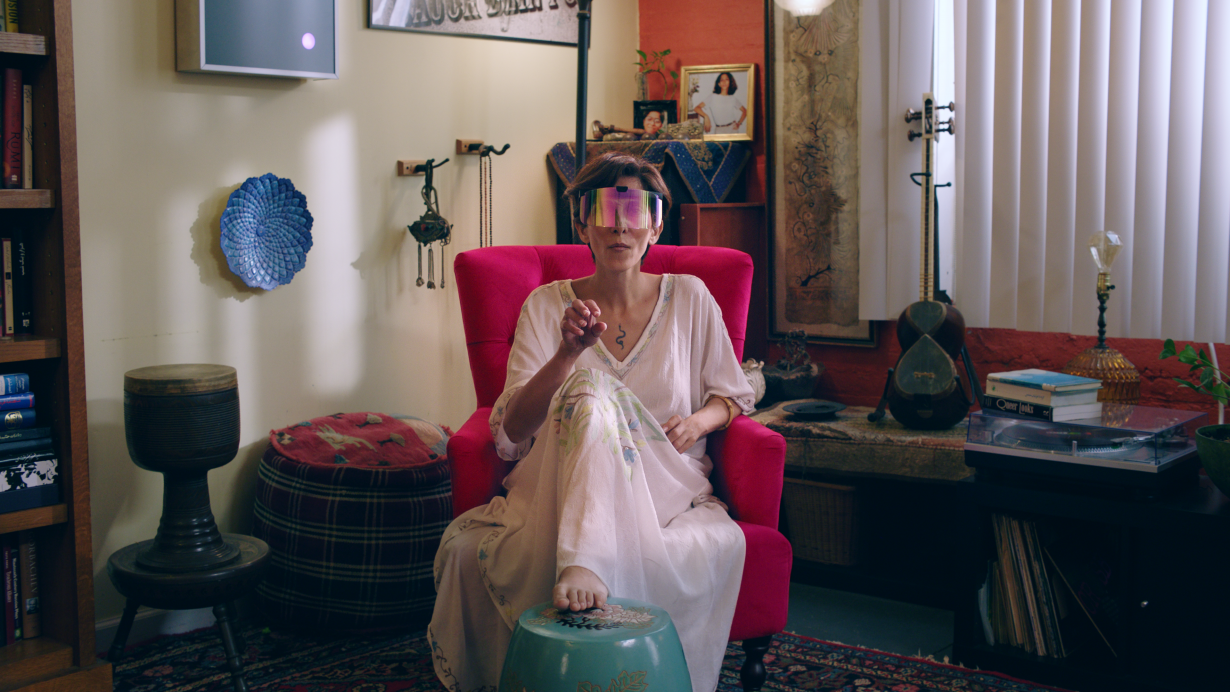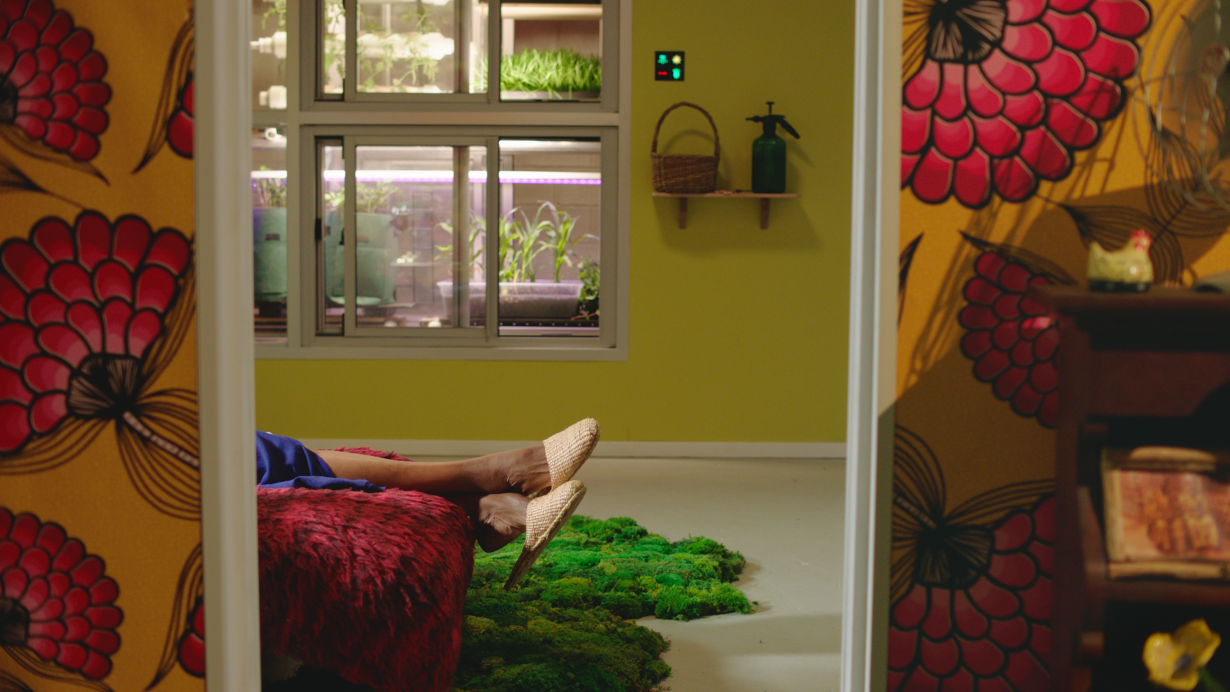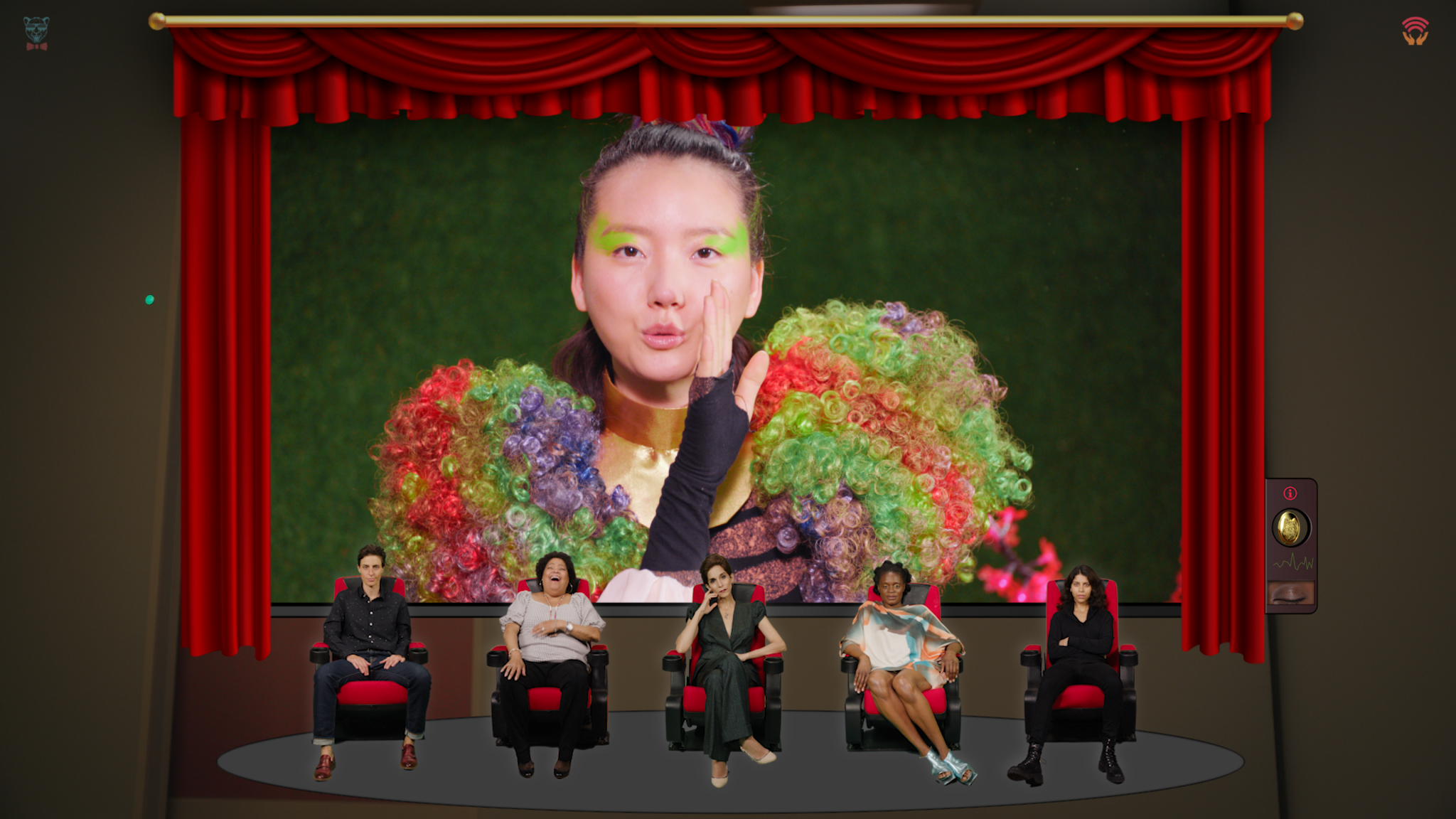Mika Rottenberg and Mahyad Tousi’s Remote imagines a future lockdown with a magnetic combination of nostalgia and the bizarre
Mika Rottenberg’s first feature film, co-directed with Iranian-American Mahyad Tousi, starts with the murmur of lockdown life, albeit set sometime in the future. We follow Unoaku, who lives and works in a high-rise retro-futuristic apartment, as she goes about her regimented routine, from yoga sessions and cooking rituals to tending her hydroponic garden to online working. She politely but numbly joins her neighbours at the window to bang on a pot each night (for whom or what is left unclear), and finally unwinds in front of programmes played through an elaborate VR headset. Filmed using long static shots, the first part of the film feels deliberately slow and repetitive, with some obvious nods, notably in the kitchen scenes, to Chantal Akerman’s slow-boiling drama Jeanne Dielman (1975). Except here the domestic routine is interrupted by something less gruesome and more millennial: a South Korean YouTube-style dog-grooming show, featuring the quirky Eunji and her Westie Soju, that Unoaku watches out of boredom and via which she inexplicably finds herself connected virtually to four other women living around the globe.


Bringing them together is their shared perception of an anomaly: they seem to be the only ones able to see that the kooky mechanical puppy-in-a-bath novelty clock on the set of the dog show is going backwards. The pace of the film quickens as the mystery turns to obsession: Unoaku skips her yoga sessions, orders takeaway and spends increasing time online, gathering every night with the avatars of her newfound community for virtual viewing parties in search of an explanation of this bizarre phenomenon.
There’s something magnetic about Remote: the polished cinematography combined with the nostalgic, colourful sets, its projection of a future in which remote life has become the norm, the silly but hypnotic dog show, the stunning all-women cast. Not to mention the absurdist surrealism Rottenberg is known for, and into which the film eventually spirals entirely, complete with overgrown fingernails, space portals and the promise of physical contact. At its climax, though, the narrative is interrupted rather grotesquely (the final scene strikes somewhere between The Matrix and SpongeBob) and exposes what is perhaps the film’s limitation. Where Rottenberg’s zany, looped videoworks have a unique way of staging the absurd logic of our capitalist world, Remote’s linear narrative doesn’t have much to say, except a not very original tale about the potency of human touch in an increasingly digitised world. Destination aside, it’s still worth the ride.
Remote by Mika Rottenberg and Mahyad Tousi, feature film on general release
